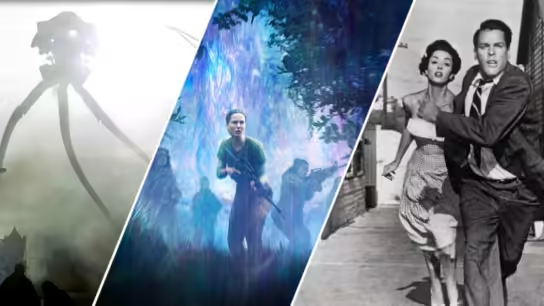Quentin Tarantino is a filmmaker whose name has become synonymous with bold storytelling, vivid characters, and a unique blend of genres. Since bursting onto the scene in the early 1990s, Tarantino has left an indelible mark on cinema with his distinctive style, sharp dialogue, and unapologetic approach to violence and storytelling. Let’s embark on a journey through the world of Quentin Tarantino movies, exploring his career highlights, thematic motifs, and enduring influence on the film industry.
The Early Career and Breakthrough
Quentin Tarantino’s career began with his indie hit “Reservoir Dogs” (1992), a tightly wound crime thriller that introduced audiences to his knack for sharp dialogue and non-linear storytelling. With its ensemble cast and memorable scenes (who can forget the ear-cutting scene?), “Reservoir Dogs” announced Tarantino as a director to watch.
Pulp Fiction (1994): A Cultural Landmark
However, it was “Pulp Fiction” (1994) that catapulted Tarantino to international fame and solidified his status as a visionary filmmaker. This neo-noir crime film, told through intersecting storylines, captivated audiences with its eclectic mix of violence, humor, and pop culture references. It won the Palme d’Or at Cannes and garnered multiple Oscar nominations, including Best Picture and Best Director. John Travolta’s comeback role and Samuel L. Jackson’s iconic portrayal of Jules Winnfield are just some of the film’s enduring legacies.
Tarantino’s Ode to Genre Films
Throughout his career, Tarantino has paid homage to various genres while putting his own spin on them. “Kill Bill” (2003-2004), presented as two volumes, is a revenge epic that blends martial arts, spaghetti western, and Japanese samurai cinema. Uma Thurman’s portrayal of The Bride seeking vengeance against her former associates is a tour de force of action and style.
The Revisionist History of “Inglourious Basterds” (2009)
“Inglourious Basterds” (2009) rewrote history with its fictionalized account of a group of Jewish-American soldiers plotting to assassinate Nazi leaders during World War II. The film is quintessential Tarantino, featuring intense dialogue scenes, memorable characters like Brad Pitt’s Lt. Aldo Raine, and a climax that reimagines the downfall of the Third Reich in gloriously audacious fashion.
“Django Unchained” (2012) and “The Hateful Eight” (2015)
Tarantino continued to explore themes of vengeance and justice with “Django Unchained” (2012), a Western set in the antebellum South. The film starred Jamie Foxx as Django, a freed slave turned bounty hunter, and Christoph Waltz as his mentor, Dr. King Schultz. “The Hateful Eight” (2015), a claustrophobic Western set primarily within a single cabin during a blizzard, delves into themes of betrayal and deception among a group of strangers.
Tarantino’s Farewell: “Once Upon a Time in Hollywood” (2019)
“Once Upon a Time in Hollywood” (2019) marked Tarantino’s ninth film and has been touted as his love letter to the golden age of Hollywood. Starring Leonardo DiCaprio as a fading TV star and Brad Pitt as his loyal stunt double, the film weaves together multiple storylines against the backdrop of 1969 Los Angeles, culminating in a revisionist take on the Manson Family murders.
Influence and Legacy
Quentin Tarantino’s influence on modern cinema cannot be overstated. His films have inspired countless filmmakers with their bold storytelling, eclectic soundtracks, and unflinching portrayal of violence and humanity. Tarantino’s dedication to craftsmanship, from meticulous dialogue to his use of non-linear storytelling, has reshaped audience expectations and elevated the art of filmmaking.
Conclusion
In the world of Quentin Tarantino movies, each film is a testament to his singular vision and passion for storytelling. Whether exploring themes of revenge, justice, or the complexities of human nature, Tarantino has carved out a niche that blends homage with innovation. As he continues to shape his cinematic legacy, audiences eagerly await what bold narrative he will unleash next. Tarantino remains a true auteur, unafraid to challenge conventions and push the boundaries of storytelling in ways that captivate and provoke thought long after the credits roll.





